Juno And The Peacock (1930)
Directed by: Alfred Hitchcock
Written by: Sean O' Casey
Starring: Edward Chapman, John Laurie, Kathleen O' Reagan, Sara Allgood
UK
AVAILABLE ON DVD
RUNNING TIME: 96 min
THE HITCHCOCK CAMEO: none
REVIEWED BY: Dr Lenera, Official HCF Critic
In the slums of Dublin during the Irish Civil War, Captain Boyle lives in a two room tenement flat with his wife Juno and their children Mary and Johnny. Juno has dubbed her husband “the Paycock” because she thinks him as useless and vain as a Peacock. While she works, the Captain loafs around the flat when not drinking up the family’s meagre finances at the neighbourhood pub. Daughter Mary has a job but is presently on strike against the victimization of a co-worker,while son Johnny, an informer who has recently turned in a fellow IRA member to the Irish Free State police, has become a semi invalid after losing an arm and severely injuring his hip in a fight. Mary dumps her boyfriend Jerry Devine for Charlie Bentham, a lawyer who whisks her away after telling Mary’s family the Captain is to receive an inheritance. Perhaps the family’s fortunes are going to change?
After the full-blown Hitchcockery of Blackmail, it comes as a considerable disappointment to discover that the director’s next film ‘proper’ is another darn play adaptation with little of the ingredients you expect to find in a film from the Master Of Suspense. More than that, it’s a play that Hitchcock doesn’t seem to have tried hard to make cinematic. Against the odds though, Juno And The Paycock is rather good. It’s a very human and touching tale of a family struggling in a very bad time, with vividly drawn and very recognisable characters. Yes, it’s static and talky, and those are things I tend not to be the biggest fan of in cinema. Nonetheless, I was surprised how involved I was with the film though, helped by some really fine performances, even if all in all it’s still a very minor Hitchcock film which quite a few other directors of the time would have been fine directing.
Amazingly, for a film he later expressed serious dislike of – to the point of saying that “it had nothing to do with cinema” – this was a project Hitchcock actually initiated, having been impressed by Sean O’Casey’s play when he saw it on the stage. He met the great playwright, who tended to be both praised and criticised for bringing to the stage an Ireland that was close to the reality and that many people just did not want to talk about, and it was agreed that the ‘All Talkie’ film would utilise some of the stage production cast. Hardly anything was altered for the screen except the addition of an explanatory scene near the beginning and the removal for the censors of direct references to the IRA, a suggestion that the Republicans have a right to attack the police [this kind of idiocy was still going on fifty decades later where, even if you see an IRA person speak on the news, you couldn’t hear the words he was saying] and illegitimate pregnancy, though the language used still makes the latter pretty obvious. The film was only a minor commercial success but, to his partial embarrassment, it got some of the best reviews of a Hitchcock film yet, even if today it is largely forgotten. O’Casey himself later became the inspiration for the prophet of doom in The Birds.
The opening scene of a person speaking to a crowd, followed by a shooting and a riot, gets the film off to a nice dramatic start and the added scene that follows, which was written by O’ Casey himself and consists of talk in a pub, tells us something of the background, probably deemed essential when certain references had been removed for censorship. The authentic Irish accents take some getting used to and I must say right here that the quality of the DVD I watched [there are apparently better ones, though it seems that no copies of this movie at the time of writing look much good] was so bad that not only could I not always hear what people were saying, but that every now and again people’s heads went missing above the frame. Many silent, indeed old, films are continually re-released on DVD in this manner because they are in the public domain and therefore distributors don’t have to pay any royalties and feel free to put out any old crap without bothering with restoration. Of late Hitchcock’s older films have been treated more with the respect they deserve so I’m sure they’ll get around to this improving this one at some point.
After the pub scene we switch to the family flat and the film only occasionally leaves it, but for a while the characters, and their witty, barbed dialogue, keep one going. The Captain is a selfish layabout who conveniently has problems with his legs whenever he’s near a job. The son Johnny is passionate about Ireland but comes across as a symbol of narrow-minded, even blind, nationalism. Mary the daughter calmly exchanges one boyfriend for another but remains someone we don’t know much about until near the end where she is easily led astray. Poor Juno holds this lot together, the archetypal working mother in a story which hardly portrays the male of the species in a good light and even almost seems proto-feminist. Even if you think about the other characters, the females are far nicer than the men. For example there’s the couple that are the Boyle’s chief friends, the seducing lawyer who actually doesn’t have a clue what he’s talking about, and Mary’s ex-boyfriend Jerry who seems like he’s going to be a knight in shining armour to this abandoned and ‘up-the-duff’ woman, but turns out not wanting to know when she tells all to him. The fact that all these folks seem very real, and not part of some kind of masculine self-hatred, is testament to O’Casey’s superb writing. The Captain is incredibly arrogant and his laxiness unforgiveable but you really feel his anger when he feels his children have betrayed him.
Indeed you can’t credit Hitchcock with too much of this film, who keeps the direction unobtrusive with lots of long takes [something he would employ, with mixed results, years later], but does show some great technical virtuosity with things such as sound. A scene where a phonograph playing music is interrupted by a funeral procession outside would actually have been very difficult to do in a time where every bit of sound had to recorded live on set, and the problem was compounded by they not being allowed to use a recording of the song, so they actually got a singer and an orchestra to sound like they were emitting from a tiny record. Despite this kind of ingenuity, watching Juno And The Paycock really is like watching the play onstage for the most part but the skilful writing and acting, especially by Sarah Allgood as the put-upon mother who has a scene of grief at the end which really shows her acting chops, keep the interest for the most part, though there is a middle section where everyone signs a song in turn which had even me considering reaching for the remote control.
There is some real laugh-out-loud humour in the first half, mostly involving the Captain and his wife. An especially great bit involves Juno passing round a plate with cake on it, a third of it sliced, the rest unsliced. Just before the plate gets to the Captain, Juno quickly takes the larger unsliced portion off, knowing her sponger of a husband will want to take more than his fair share. Of course there’s a bitterness to all this, and the story does become very tragic, though at least Juno finds the strength to leave her dreadful spouse, leaving us with some positivity and faith in humankind to go with the despair and the idiocy which has led to the sad events which occur. The play was adapted for TV in 1938, 1960 and 1980. but the tale told here would certainly withstand another cinematic telling that could open it out and show more of what is just alluded to, but Hitchcock’s faithful version is pretty okay on its own.


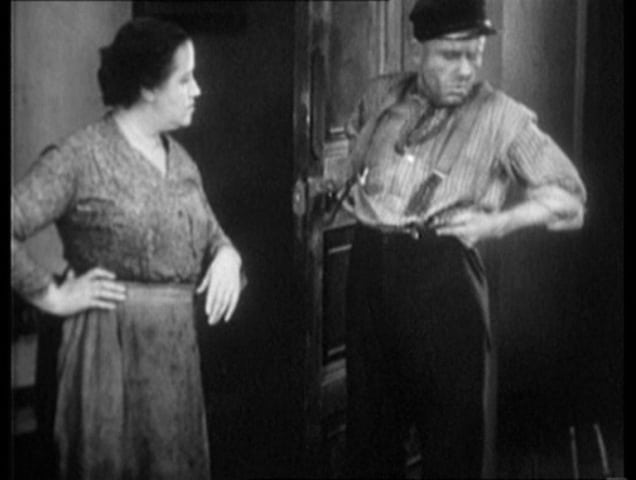
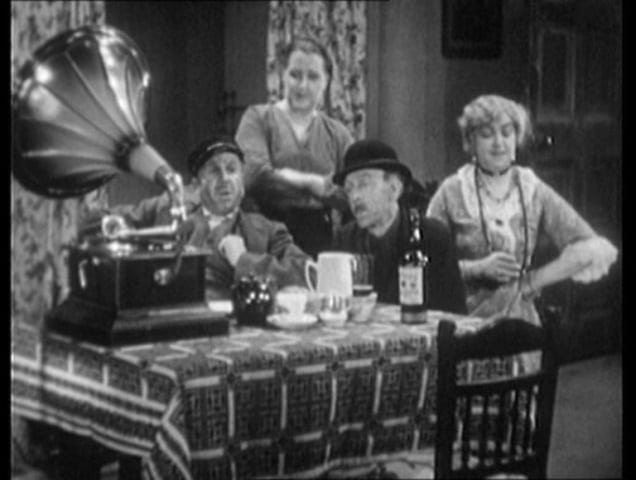



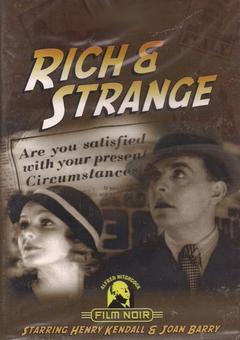
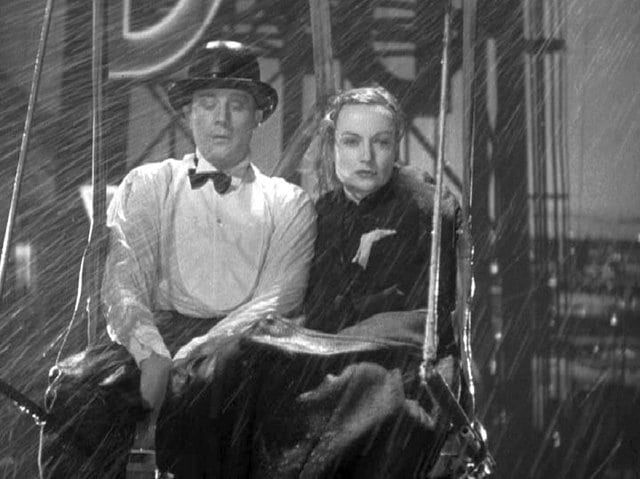
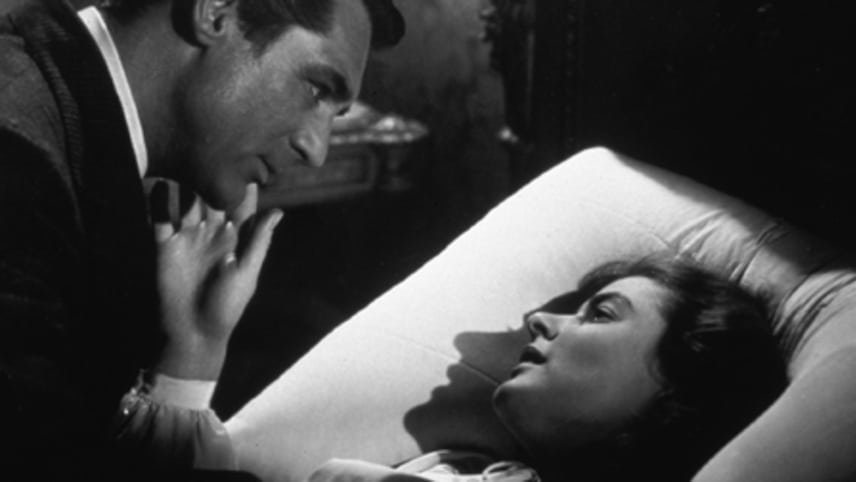
Be the first to comment